How to Transition from Cohosting to Full Trust Accounting for Short-Term Rental Property Management Companies
Thinking about switching from cohosting to trust accounting? This guide explains the key differences, benefits, and best practices for Short-Term Rental property managers looking to transition. Learn how to navigate owner concerns, understand state trust accounting laws, and phase into a scalable financial model that supports both compliance and growth.
July 22, 2025
Corey
.png)
How to Transition from STR Cohosting to Full Trust Accounting

The Short-Term Rental (STR) industry is rapidly evolving, and with this growth comes increased scrutiny around financial practices. If you’re currently managing properties as a cohost and considering the transition to trust accounting, you’re not alone. Many STR operators find themselves weighing the need for scalability and compliance against the simplicity of cohosting arrangements. This guide provides a clear comparison between the two models, outlines the critical differences, and walks you through a compliant, stepwise transition toward trust accounting—ensuring you’re prepared to meet regulatory requirements and foster growth in your business.
Cohosting vs. Trust Accounting: Understanding the Fundamentals
What is Cohosting?
Cohosting is a popular model among STR property managers, especially in states with strict real estate licensing requirements. Under cohosting, all guest payments go directly to the property owner or their business entity. The manager (cohost) invoices the owner separately for management fees, markups, or reimbursable expenses. Since the manager never handles client funds directly, there’s less regulatory overhead and a lower risk of non-compliance.
However, this convenience comes with notable tradeoffs:
- Difficulty centralizing finances when managing a large or diverse portfolio
- Complicated reporting, leading to possible reconciliation issues
- Challenges in scaling operations or integrating with purpose-built property management tools
What is Trust Accounting?
Trust accounting is a mature framework required in many U.S. states, notably North Carolina, where laws govern fiduciary responsibility over client funds. In this model, the property management company collects all guest funds into a separate, dedicated trust account (sometimes on behalf of each owner individually). After reconciling revenue and expenses, funds are distributed to owners with detailed statements.
Trust accounting delivers:
- Financial clarity and robust owner reporting
- Comprehensive expense and revenue reconciliation
- Alignment with state trust accounting and fiduciary laws
For a deeper dive into trust accounting principles, reference guides from your state’s real estate regulatory agency.
When and Why Should You Transition to Trust Accounting?

Growth, compliance requirements, and investor expectations all drive the need for a scalable financial model. Many property managers begin with cohosting to sidestep licensing or escrow requirements, but quickly discover its limitations as they expand.
Transitioning becomes essential when:
- Your portfolio crosses state lines or enters regulated jurisdictions (e.g., North Carolina’s broker trust rules for vacation rentals)
- Owners request unified, clear statements
- You want to centralize and automate financial workflows, such as reconciliations, expense categorization, and owner disbursements
- You plan to attract new owners who expect best-in-class reporting and transparency
Adopting trust accounting not only enhances compliance but also builds long-term value and trust with stakeholders.
The Transition Process: From Cohosting to Trust Accounting
Shifting to trust accounting is not a binary leap; it’s an operational evolution. Here’s how to do it compliantly:
1. Assess Regulatory Requirements and Licensing
Before transitioning to trust accounting, it’s critical to research the specific trust accounting and real estate licensing laws in your state. These regulations vary widely, and misunderstanding them can lead to costly compliance issues. For example, in North Carolina, vacation rental managers are required to maintain designated trust accounts, conduct monthly reconciliations, and follow strict escrow protocols.
These aren’t suggestions—they’re legal requirements. Take time to determine whether you or members of your team need a real estate broker or property management license to operate under a trust accounting model in your jurisdiction.
Laying this groundwork ensures your transition is not only smooth but also fully compliant from day one.
2. Open and Structure Your Trust Accounts
Start by opening a dedicated trust account at a qualified financial institution—this account must be entirely separate from your business’s operating funds. Keeping client funds isolated is foundational to both compliance and good fiduciary practice. If you're managing a portfolio with multiple owners, consider setting up sub-accounts or implementing detailed internal ledgers to avoid commingling and enable accurate, asset-level reporting.
Alongside your banking structure, establish a clear chart of accounts or categories that reflects how you plan to track income and expenses. This ensures consistency across your reporting, simplifies reconciliations, and sets the stage for automation as you scale.
3. Update Owner Agreements and Internal Policies
As you transition to trust accounting, it’s essential to update your management agreements to reflect the new flow of funds and fee structures. These contracts should clearly define how guest payments are handled, who is responsible for managing those funds, and how refunds and reimbursable expenses are processed.
Establishing clear, written procedures for owner communication, dispute resolution, and recurring financial reporting will help set expectations and reduce confusion. Solidifying these details upfront not only protects your business legally but also builds confidence with property owners as you introduce a more structured and transparent financial model.
4. Reconcile Bookings and Payouts
When shifting to trust accounting, don’t try to migrate everything at once. Instead, phase in new bookings gradually to ensure accurate revenue recognition and prevent double billing or owner confusion. During this transition, implement a consistent reconciliation schedule—ideally monthly—where you match bank balances against booking revenues, recorded expenses, and owner statements. This process is essential for staying compliant with state trust accounting rules.
Additionally, make sure your workflow includes clear documentation for reimbursable expenses, such as maintenance, amenities, or restocking supplies. These small charges add up and must be properly attributed to the right owner and property to maintain accurate records and transparent reporting.
5. Leverage Automated, STR-Specific Software
Manual accounting may work in the early days, but it quickly becomes error-prone and unsustainable as your portfolio grows. That’s where modern platforms like Clearing come in.
Clearing automates trust accounting workflows while supporting both cohosting and full trust models within a single, unified system.
You can reconcile bulk payouts from OTAs, automate revenue and expense allocations by owner or property, and avoid the risk of data loss during migration. Most importantly, Clearing enables you to operate hybrid models—allowing you to manage cohosted and trust-based clients simultaneously.
This flexibility is a game-changer, especially during transitional periods when not all owners are ready to move at the same pace.
Addressing Owner Concerns: Navigating Resistance and Communication

One major hurdle when shifting to trust accounting is owner skepticism. Many owners prefer cohost models for perceived cash flow control or simplicity. Others worry about delays or loss of transparency. To ensure a smooth transition follow these practical tips.
1. Educate Property Homeowners
One of the most effective ways to ease owner concerns during the transition to trust accounting is through education. Help them understand the tangible benefits this model offers—starting with enhanced financial reporting. With trust accounting, owners receive clearer, more detailed statements that break down income, expenses, fees, and distributions, giving them greater visibility into their property's performance.
It's also important to explain the legal advantages: trust accounting aligns with state regulations and fiduciary standards, reducing the risk of non-compliance. This model also minimizes audit risk by maintaining accurate, well-documented financial records that can be easily reviewed if needed.
When owners see that trust accounting protects both their income and your business's integrity, they’re more likely to get on board.
2. Demonstrate operational transparency
Transparency is key to building and maintaining owner trust—especially during times of change. Demonstrate your commitment to operational transparency by delivering regular, detailed owner statements that clearly outline earnings, expenses, management fees, and any reimbursements. These reports should be easy to read and consistent across billing cycles, helping owners feel confident in the accuracy of their payouts. Just as important is the timeliness of those payouts. When owners see that they’re being paid promptly and have full visibility into how those figures are calculated, it reinforces your professionalism and strengthens their confidence in your financial processes.
3. Emphasize that hybrid operations are possible (although not preferred) to give them an option
It’s also helpful to emphasize that hybrid operations are not only possible—they’re often a practical step during the transition. With platforms like Clearing, you can manage both cohosted and trust accounting models side by side, giving you the flexibility to meet each owner's preferences without disrupting your entire operation.
While standardizing on trust accounting is the most scalable and efficient long-term strategy, being able to accommodate a particular owner’s request—especially if they’re hesitant or have unique needs—can help you retain valuable relationships. Of course, this should be weighed carefully; if maintaining a cohost setup for one owner becomes disproportionately time-consuming or inefficient, it may be worth reconsidering. But in many cases, offering this flexibility builds goodwill and gives you time to phase them into the full trust model at a later stage.
4. Encourage owners to review industry resources
Finally, encourage owners to explore industry resources and state regulatory guides to better understand the importance of fiduciary accounting. Sometimes hearing it from a third-party source—especially one with legal or regulatory authority—can reinforce what you’ve already communicated.
Sharing links to real estate commission guidelines, professional association materials, or even case studies of STR operators who have transitioned successfully can help owners see the bigger picture.
This not only builds credibility but also empowers them to make informed decisions about their partnership with you.
Note: It's important to re-iterate, hybrid capability means you don’t have to force a drastic change—managers can migrate willing owners first while supporting existing cohost preferences, standardizing gradually as trust builds.
Best Practices for a Seamless and Compliant Transition
Succeeding with trust accounting isn’t just about the right tools—it’s about consistent processes and disciplined execution. Here are the key practices to prioritize:
✅ 1. Regular, Detailed Reconciliations
Perform monthly (or more frequent) reconciliations to match bank balances with booking data and expense records. This ensures accuracy, audit readiness, and regulatory compliance.
✅ 2. Segregation of Funds
Always keep client money in a dedicated trust or escrow account—completely separate from your business operating funds. Co-mingling is a major compliance risk and must be avoided.
✅ 3. Accurate Expense Attribution
Use software to allocate every expense—whether it’s a cleaning, repair, or guest amenity—to the correct property and owner. This ensures precise reporting and fair, transparent owner payouts. Clearing integrates with Ramp to bring best-in-class expense management into your workflow, and also offers powerful built-in tools for managing expenses directly. With Clearing, you can customize the level of automation that works best for your operation—balancing control with efficiency as you scale.
✅ 4. Clear Owner Statements
Issue simple, transparent statements that break down earnings, fees, and reimbursable expenses. Clear reporting reduces questions and builds long-term trust.
✅ 5. Timely Owner Payouts
Send owner disbursements promptly after reconciliation. Timely payments show operational maturity and help maintain strong owner relationships.
✅ 6. Stay Informed on Regulations
Trust accounting laws can evolve. Stay current by checking with your state’s real estate commission, consulting legal counsel, or referencing reputable sources like VRMA or IREM. We always encourage talking with your specific real estate commission to learn more about trust accounting requirements for Short-Term Rental property management in your state.
Why Standardize and When to Fully Transition?

Operating mixed models is useful during the transition, but establishing a single trust accounting workflow is best for long-term efficiency. Cohosting increases manual work and risk as you scale. Standardizing on trust accounting:
- Centralizes financial data for audit readiness
- Automates compliance and reporting
- Reduces staff workloads
- Makes your company more attractive to new owners and investors
The ideal timing depends on your owner base, tech stack, and regulatory pressures. With tools like Clearing, you can minimize cost and data risks, phasing in the transition over several months with full platform support.
Phase In, Don’t Rush—But Start the Journey Now
Moving from cohosting to trust accounting doesn’t have to be overwhelming. With the right education, compliant policies, and modern STR accounting tools behind you, the transition is manageable and can be accomplished in stages. Hybrid models are a practical way to bring owners along at their pace while you centralize and strengthen your business foundations.
Taking action now protects your business from compliance issues, unlocks scalable growth, and builds a reputation for professionalism and transparency.
Ready to centralize your STR financial operations and unlock the benefits of industry-leading trust accounting? Book a personalized demo with Clearing today to see how you can manage both models with confidence and efficiency.
Clearing is a Financial Technology Company, not a bank.



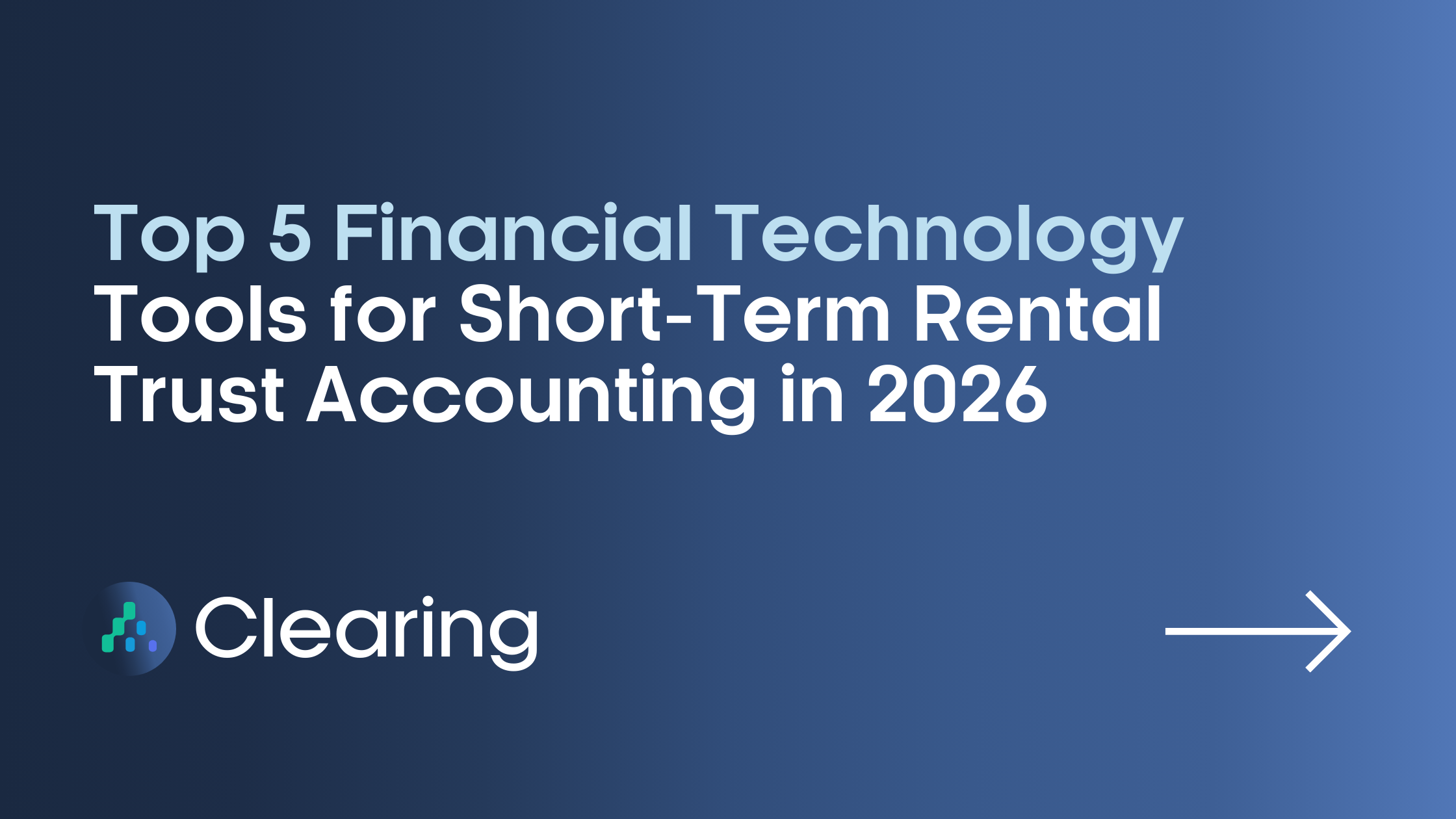

.png)
.png)
.png)
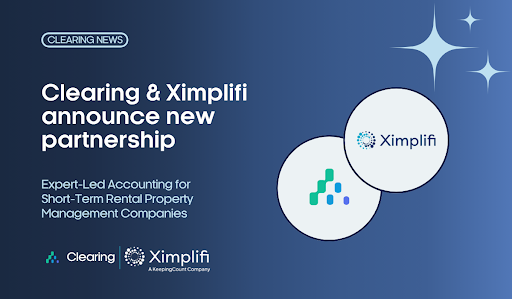
.png)
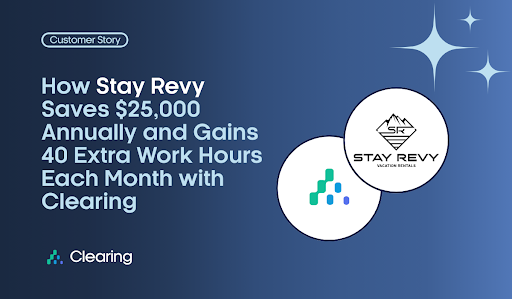
.png)
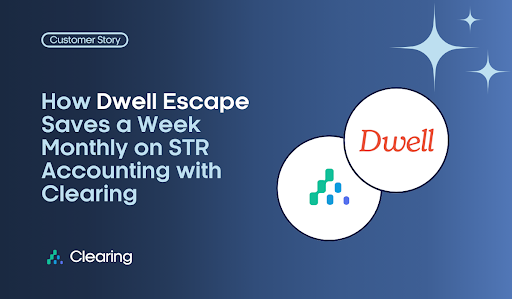
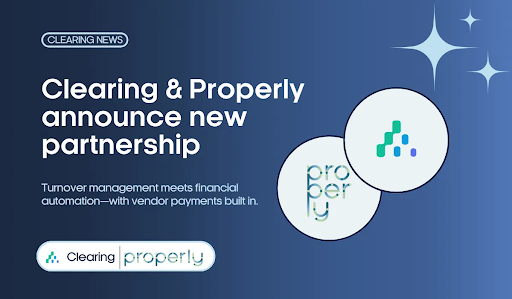
.png)
.png)
.png)
%20(1).png)
%20(1).png)
%20(1).png)
%20(2).png)
%20(1).png)
%20(1).png)
.png)

.png)
.png)
.png)
%20(1).png)
.png)
.png)
.png)
.png)
.png)
.png)
.png)
%20(1).png)
.png)
.png)
.png)
%20(1).png)
%20(1).png)
%20(1).png)








.jpg)
%20(1).png)
%20(1).png)
%20(2).png)
%20(1).png)

%20(1).png)
%20(1).png)
%20(1).png)



%20(1).png)
%20(1).png)
%20(1).png)
%20(1).png)
%20(1).png)


%20(1).png)
%20(1).png)
%20(1).png)
%20(2).png)
%20(2).png)



%20(2).png)


%20(2).png)
%20(1).png)
.png)


%20(2).png)
%20(2).png)

.jpg)
.png)
.png)
.png)



.png)

.png)
%20(1).png)